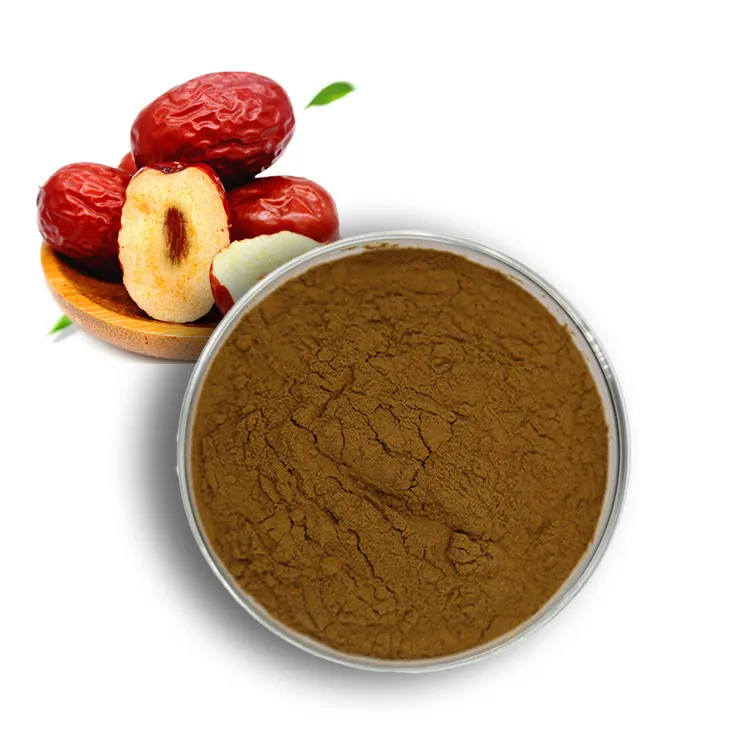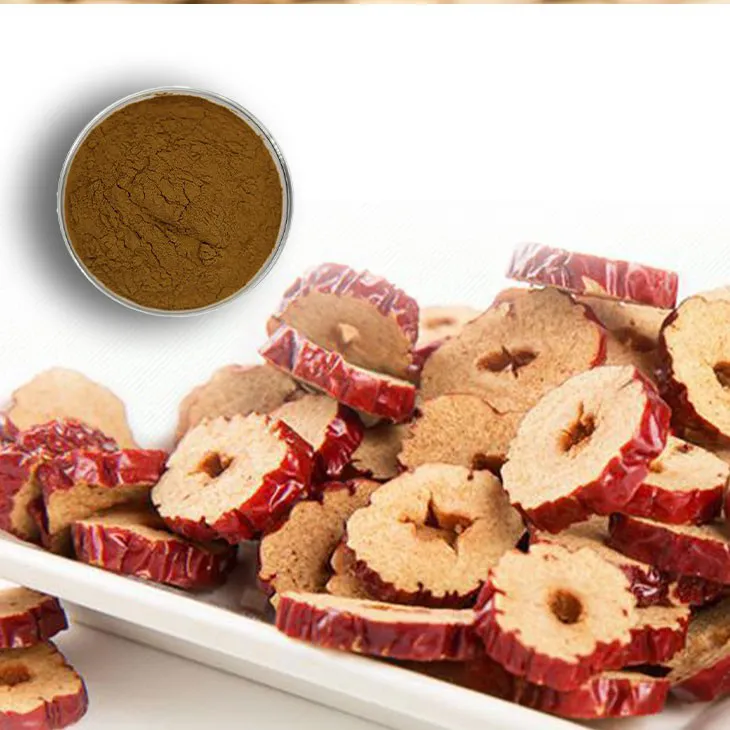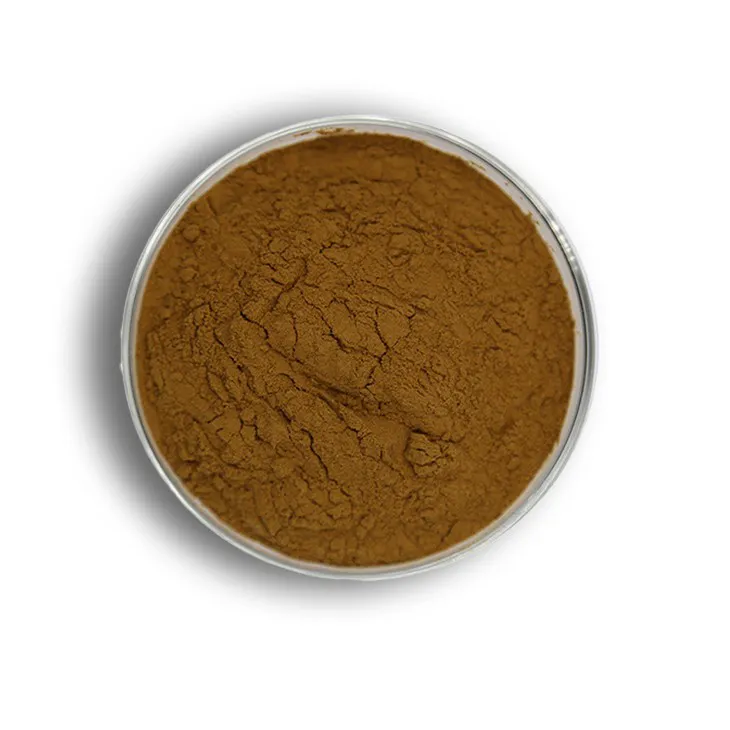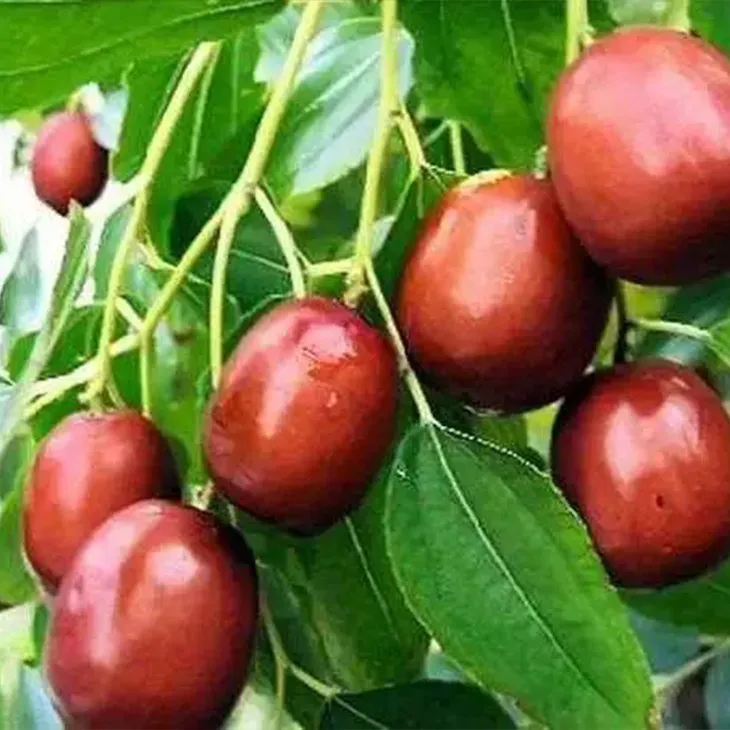- 0086-571-85302990
- sales@greenskybio.com
Chinese jujube extract factories.
2024-12-01

1. Introduction
In China, the Jujube Extract factories are gradually becoming significant contributors in the natural product manufacturing domain. Jujube, which has a profound cultural and dietary importance in China for a long time, is now being transformed into high - value extracts. This development not only makes full use of the unique properties of jujube but also meets the growing market demand for natural products.

2. The Extraction Process
These factories are dedicated to efficient extraction procedures. They employ environmentally - friendly and scientific techniques to extract active components from jujubes.
2.1 Active Ingredients
The main active ingredients such as polysaccharides, flavonoids, and vitamins are of particular interest. Polysaccharides are known for their potential health - promoting effects, like enhancing the immune system. Flavonoids are antioxidants that can help in preventing oxidative stress - related diseases. And vitamins are essential for various physiological functions in the human body.
2.2 Scientific Methods
Modern extraction methods include techniques like supercritical fluid extraction and microwave - assisted extraction. Supercritical fluid extraction uses a substance at its supercritical state (e.g., carbon dioxide) to selectively extract the desired components. This method is clean and efficient, as it can operate at relatively low temperatures, which helps to preserve the activity of the extracted substances. Microwave - assisted extraction, on the other hand, utilizes microwave energy to accelerate the extraction process, reducing the extraction time while maintaining high extraction efficiency.

3. Contribution to the Local Economy
Chinese Jujube Extract factories play a crucial role in the local economy, especially in rural areas where jujube cultivation is widespread.
3.1 Employment Opportunities
They create a large number of employment opportunities. From the cultivation of jujubes to the final extraction process, various types of jobs are generated. For example, farmers are employed in jujube orchards for cultivation and harvesting. In the factories, workers are needed for operating extraction equipment, quality control, and packaging. This helps to improve the income levels of local residents and also reduces rural - urban migration to some extent.
3.2 Industrial Chain Development
These factories also contribute to the development of the entire industrial chain. They stimulate the growth of related industries such as packaging, transportation, and sales. For instance, the demand for high - quality packaging materials has increased to ensure the quality and shelf - life of Jujube Extracts. Transportation companies are also involved in transporting raw materials and finished products, which promotes the development of the local logistics industry.

4. New Applications of Jujube Extracts
Jujube extract factories are constantly exploring new applications for jujube extracts, which expands the market potential of jujube - related products.
4.1 Functional Foods
In the field of functional foods, jujube extract has shown great potential. It can be added to various food products to enhance their nutritional profile. For example, in breakfast cereals, jujube extract can provide additional vitamins and antioxidants. In energy bars, it can contribute to the overall energy - providing components while also adding a unique flavor. The natural and healthy image of jujube extract makes it an attractive ingredient for consumers who are increasingly interested in functional and healthy foods.
4.2 Nutraceutical Industry
In the nutraceutical industry, jujube extract is being intensively studied for its potential in preventing certain diseases. Research has suggested that the active ingredients in jujube extract may have beneficial effects on health conditions such as cardiovascular diseases, diabetes, and some types of cancers. For example, flavonoids in jujube extract may help in reducing blood pressure and improving blood lipid profiles, which are important factors in preventing cardiovascular diseases. As a result, jujube extract - based nutraceutical products are emerging in the market, targeting consumers who are concerned about their health and are looking for natural alternatives to traditional medications.

5. Challenges Faced by Jujube Extract Factories
Despite their development and potential, Chinese jujube extract factories also face several challenges.
5.1 Raw Material Quality Variation
One of the major issues is the raw material quality variation. Jujube quality can be affected by various factors such as climate, soil conditions, and cultivation methods. Different regions may produce jujubes with different levels of active ingredients. This can lead to inconsistent quality of the extracts. For example, jujubes grown in regions with poor soil fertility may have lower levels of polysaccharides and flavonoids, which in turn affects the quality and efficacy of the final extract product. Factories need to establish strict quality control measures to ensure the consistency of raw material quality, such as selecting high - quality jujube sources and implementing standardized cultivation techniques in cooperation with farmers.
5.2 Competition from Other Similar Products
Another challenge is the competition from other similar products. In the natural product market, there are many alternative sources of polysaccharides, flavonoids, and vitamins. For example, some fruits and herbs may also contain similar active ingredients and can be used to produce extracts with similar functions. Consumers may choose these alternative products based on factors such as price, brand reputation, and availability. Jujube extract factories need to differentiate their products through quality improvement, product innovation, and effective marketing strategies. They can emphasize the unique cultural and traditional values of jujube in China, as well as the specific health benefits that are exclusive to jujube extract.
6. Conclusion
In conclusion, Chinese jujube extract factories have made great progress in the extraction of jujube and the exploration of its applications. They contribute significantly to the local economy and the development of the natural product industry. However, they also need to address the challenges such as raw material quality variation and competition to ensure their long - term and sustainable development. With continuous innovation and improvement in technology, quality control, and marketing, these factories are expected to play an even more important role in the future, bringing more high - quality jujube - based products to the market and promoting the global recognition of the value of Chinese jujube.
FAQ:
What are the main active ingredients extracted in Chinese jujube extract factories?
Chinese jujube extract factories mainly extract active ingredients such as polysaccharides, flavonoids, and vitamins from jujubes.
How do Chinese jujube extract factories contribute to the local economy?
These factories contribute to the local economy by providing employment opportunities in rural areas where jujube cultivation is prevalent.
What are the new applications of jujube extract?
Jujube extract can be added to functional foods to enhance the nutritional profile. In the nutraceutical industry, it is studied for its potential in preventing certain diseases.
What challenges do Chinese jujube extract factories face?
Issues such as raw material quality variation and competition from other similar products pose threats to these factories.
What extraction methods do Chinese jujube extract factories use?
They use environmentally friendly and scientific methods to extract active ingredients from jujubes.
Related literature
- Study on the Extraction Technology of Active Ingredients from Chinese Jujube"
- "The Role of Chinese Jujube Extract in the Nutraceutical Field"
- "Economic Impact of Jujube Extract Factories in Rural Areas"
- ▶ Hesperidin
- ▶ citrus bioflavonoids
- ▶ plant extract
- ▶ lycopene
- ▶ Diosmin
- ▶ Grape seed extract
- ▶ Sea buckthorn Juice Powder
- ▶ Beetroot powder
- ▶ Hops Extract
- ▶ Artichoke Extract
- ▶ Reishi mushroom extract
- ▶ Astaxanthin
- ▶ Green Tea Extract
- ▶ Curcumin Extract
- ▶ Horse Chestnut Extract
- ▶ Other Problems
- ▶ Boswellia Serrata Extract
- ▶ Resveratrol Extract
- ▶ Marigold Extract
- ▶ Grape Leaf Extract
- ▶ blog3
- ▶ blog4
- ▶ blog5
-
The best lemon juice powder in nature.
2024-12-01
-
Organic Vitamin K2 Powder Suppliers
2024-12-01
-
Bulk purchase of L - tyrosine.
2024-12-01
-
Vitamin K2 Manufacturers
2024-12-01
-
100% Pure Natural Rutin.
2024-12-01
-
Chinese Citrus Bioflavonoid Suppliers.
2024-12-01
-
Baicalin
2024-12-01
-
Red Wine Extract
2024-12-01
-
Wheat Germ Extract
2024-12-01
-
Citrus Aurantium Extract
2024-12-01
-
Garcinia Cambogia Extract
2024-12-01
-
Nettle Root Extract
2024-12-01
-
Eucommia Ulmoides Extract
2024-12-01
-
White Peony Extract
2024-12-01
-
Chaste Berry Extract
2024-12-01
-
Nutmeg Extract
2024-12-01





















